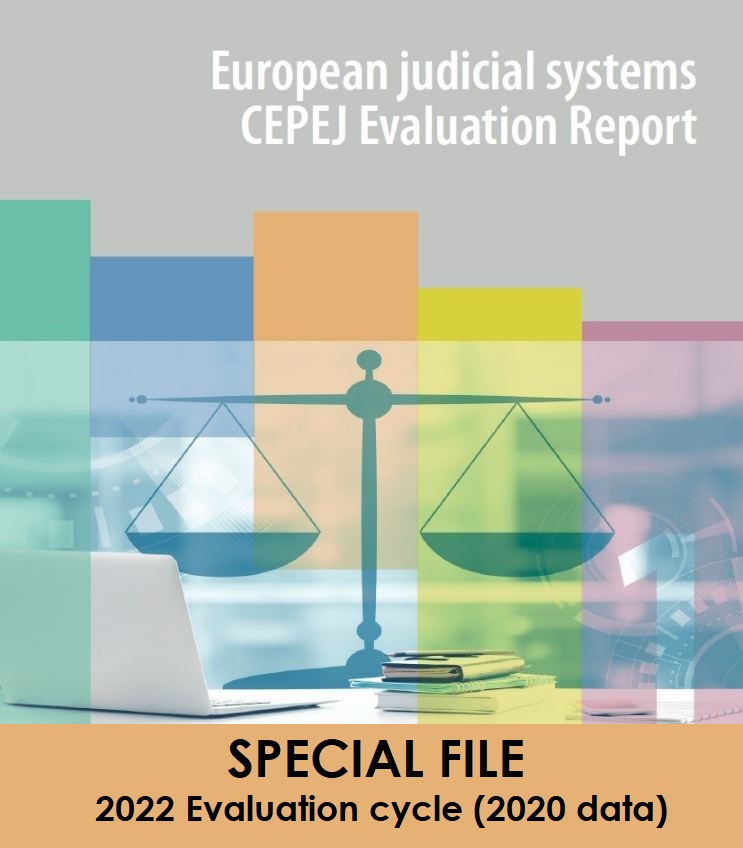Recent developments in the judicial field (Complete information)
A new Criminal Courts Complex for Dublin
A new complex designed to concentrate all criminal business for the Dublin city area in one serviced location - known as the Criminal Courts of Justice - commenced operation in November 2009. The complex, extending to 25,000 sq. meters, will accommodate the District Court and Circuit Court criminal sittings and the Central Criminal Court, Special Criminal Court and Court of Criminal Appeal. It will also house the first Combined Court Office - a new single multi-jurisdictional court office model, providing support for the courts aforementioned.
The Criminal Courts of Justice, construction of which was completed ahead of schedule, was built at a cost of €120 million under a 28-year Public private partnership arrangement, and represents the single largest capital investment in the administration of justice in Ireland since the foundation of the State.
The complex’s features include 22 courtrooms containing state-of-the-art courtroom technology including digital recording, video-conferencing and electronic evidence presentation facilities, dedicated assembly and dining areas for jurors, segregated facilities for victims, prosecution witnesses and relatives, facilities for the relaying through video-link of evidence of vulnerable witnesses, and secure custody suites and consultation rooms. A special children’s evidence suite has been specially designed following consultation with child welfare experts, allowing remote, safe facilities for children giving evidence via video-conferencing. There are extensive dedicated facilities for legal practitioners and the media.
Extension of case progression regime in Circuit Court
Amendments to the procedural rules of the Circuit Court – the intermediate level first instance jurisdiction in Ireland – were approved in late 2009 to deploy a case management regime (known as “case progression”) to various categories of civil litigation in that court. A similar regime had been deployed successfully for family law litigation during 2008.
The purpose of case progression is stated in the rules as being to ensure that proceedings are prepared for trial in a manner which is just, expeditious and likely to minimise the costs of the proceedings and that the time and other resources of the court are employed optimally. The rules assign to the senior professional legal officer of the Circuit Court – the county registrar - the functions of overseeing preparation of cases for trial in the Circuit Court, generally monitoring the progress of the case pre-trial, and making final arrangements for the trial.
This is done by means of case progression hearings. Each legal representative of a party attending the case progression hearing is required to ensure that(s)he is sufficiently familiar with the proceedings and has authority from the party (s)he represents to deal with any matters likely to arise at the hearing. The county registrar may, where it is considered necessary or desirable, direct that the parties themselves attend the hearing in addition to their representatives.
The county registrar is required to establish what steps remain to be taken to prepare the case for trial and fix a timetable for the completion of its preparation for trial or adopt any timetable proposed by the parties if satisfied that it is reasonable. The county registrar may give or make a range of pre-trial directions and orders at the hearing, and is empowered to award or disallow costs of the case progression hearing and refer to the judge cases of non-compliance with directions.
The new regime will also facilitate recourse by the parties to Alternative Dispute Resolution (mediation, conciliation, arbitration or other dispute resolution process)to settle or determine the proceedings, or issues in the proceedings. A case may be adjourned either on application by the parties or on the Court’s own initiative for this purpose, in which event time-limits for the taking of steps in the litigation may be suspended.
The volume of pre-trial motions in cases in the Circuit Court is considerable, and it is hoped that the new regime will relieve Circuit Court judges of a large pre-trial applications caseload, freeing them up for trial work.
Collaborative workspaces:






